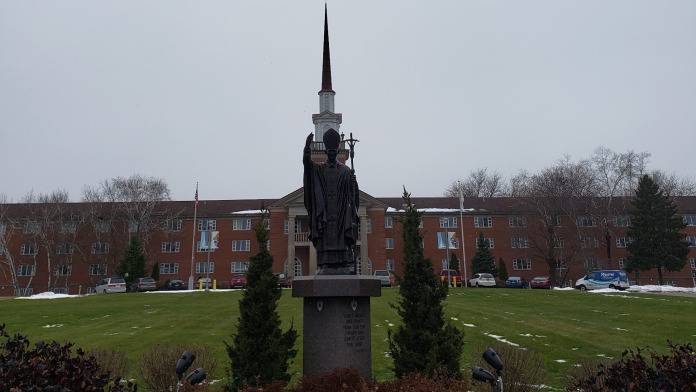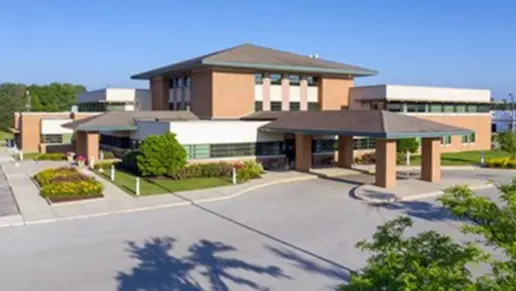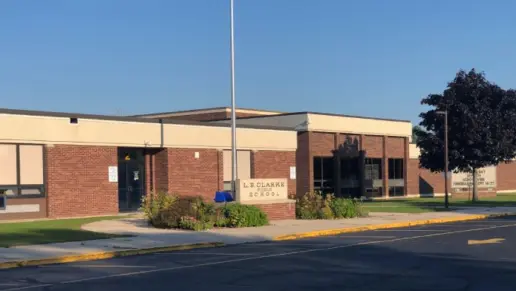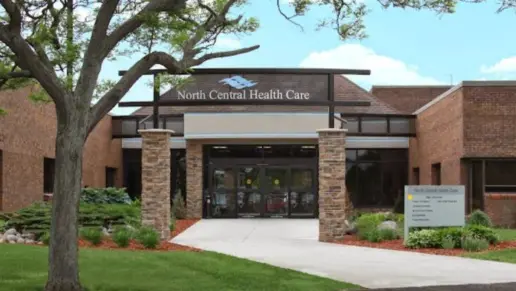God has many ways to manifest in your life and to guide you on the path of good. I thank God and the Holy Spirit for this second opportunity to improve my life.
About Catholic Charities
Catholic Charities in Madison, Wisconsin, offers a welcoming space for adults 18 and older looking for residential recovery. Whether you’re facing substance use issues or have dual diagnoses, you’ll find support at their 5 Door Recovery program. Services include an intense schedule of individual and group counseling. They prioritize health and wellness, family support and aftercare planning to make sure you have the support you need during recovery.
Catholic Charities in Madison, Wisconsin, offers a welcoming space for adults 18 and older looking for residential recovery. Whether you’re facing substance use issues or have dual diagnoses, you’ll find support at their 5 Door Recovery program. Services include an intense schedule of individual and group counseling. They prioritize health and wellness, family support and aftercare planning to make sure you have the support you need during recovery.
You won’t have to stress about payment, either. They work with a variety of insurance providers, including DeanHealth and Medicaid, and they accept referrals from county or social service agencies. You can even pay online with a debit or credit card.
Expect to be engaged! Each week you’ll participate in up to 35 hours of therapy covering topics like grief, trauma, relapse prevention and spirituality. All clients attend 12-step groups both on and off-site. One former client found that the structured days and supportive activities truly made a difference during a tough time.
What sets therapy apart here is the unique mix of evidence-based treatments including cognitive behavioral therapy along with art and animal-assisted therapy. Plus, their therapeutic recreation program helps you discover how to enjoy sober fun in public spaces!
Spirituality is also part of the program. Each day starts with meditation. Many clients attend a weekly Catholic Mass but there are also opportunities to worship in other local churches. While it’s part of Catholic Charities everyone is welcome regardless of faith.
They’ve created a trauma-sensitive environment that feels safe and inviting. It’s another thing that makes 5 Doors Recovery stand out. Most clients appreciate the soft lighting and soundproof rooms. You’ll also enjoy unwinding on the outdoor patio, taking a moment to breathe and reflect.
Don’t forget about your health! When addiction takes over it’s common for health to be neglected. Your Medical Case Manager is there to connect you with a doctor and address any overlooked health issues. On-site Medication Assisted Treatment (MAT) isn’t available but they can refer you to a provider that accepts your insurance.
With a warm and structured setting. Catholic Charities has created a good place where you can begin recovery
Latest Reviews
Rehab Score
Gallery

Location
Accepted Insurance


Other Forms of Payment
Self-pay involves paying for treatment out of your own pocket. You can use savings or credit, get a personal loan, or receive help from family and friends to fund your treatment. If you don't have insurance or your insurance plan doesn't cover a specific program, self-pay can help ensure you still get the care you need.
Financial aid can take many forms. Centers may have grants or scholarships available to clients who meet eligibility requirements. Programs that receive SAMHSA grants may have financial aid available for those who need treatment as well. Grants and scholarships can help you pai for treatment without having to repay.
Medicaid is a state based program that helps lower-income individuals and families pay for healthcare. Medicaid covers addiction treatment so those enrolled can use their coverage to pay for rehab. When a program accepts Medicaid the client often pays very little or nothing out of their own pocket.
Addiction Treatments
Levels of Care
Treatments
The goal of treatment for alcoholism is abstinence. Those with poor social support, poor motivation, or psychiatric disorders tend to relapse within a few years of treatment. For these people, success is measured by longer periods of abstinence, reduced use of alcohol, better health, and improved social functioning. Recovery and Maintenance are usually based on 12 step programs and AA meetings.
The goal of drug rehab in Wisconsin is to address drug addiction as a complex issue that involves physical, mental, and relational aspects. During rehab, treatment focuses on each of these areas and gives you the tools you need to achieve and maintain sobriety.
A combined mental health and substance abuse rehab has the staff and resources available to handle individuals with both mental health and substance abuse issues. It can be challenging to determine where a specific symptom stems from (a mental health issue or an issue related to substance abuse), so mental health and substance abuse professionals are helpful in detangling symptoms and keeping treatment on track.
Opioid rehabs specialize in supporting those recovering from opioid addiction. They treat those suffering from addiction to illegal opioids like heroin, as well as prescription drugs like oxycodone. These centers typically combine both physical as well as mental and emotional support to help stop addiction. Physical support often includes medical detox and subsequent medical support (including medication), and mental support includes in-depth therapy to address the underlying causes of addiction.
Programs


Clinical Services
Whether a marriage or other committed relationship, an intimate partnership is one of the most important aspects of a person's life. Drug and alcohol addiction affects both members of a couple in deep and meaningful ways, as does rehab and recovery. Couples therapy and other couples-focused treatment programs are significant parts of exploring triggers of addiction, as well as learning how to build healthy patterns to support ongoing sobriety.
Research clearly demonstrates that recovery is far more successful and sustainable when loved ones like family members participate in rehab and substance abuse treatment. Genetic factors may be at play when it comes to drug and alcohol addiction, as well as mental health issues. Family dynamics often play a critical role in addiction triggers, and if properly educated, family members can be a strong source of support when it comes to rehabilitation.
In individual therapy, a patient meets one-on-one with a trained psychologist or counselor. Therapy is a pivotal part of effective substance abuse treatment, as it often covers root causes of addiction, including challenges faced by the patient in their social, family, and work/school life.
Life skills trainings involve all the skills a person must have in order to function successfully in the world. These include time management, career guidance, money management, and effective communication. Truly successful addiction recovery is based on the ability to not only live substance-free, but to thrive. Life skills teaches the practical necessities of functioning in society, which sets clients up for success in life, and therefore sobriety.
Recreational therapy (aka therapeutic recreation) uses creative and fun activities to help with addiction recovery. Recreational therapists lead patients in entertaining and engaging activities like sports or games; art (drawing, painting, sculpture); drama, music, and dance; and/or community outings (field trips) to improve patients' physical, social, and emotional well-being.
Trauma therapy addresses traumatic incidents from a client's past that are likely affecting their present-day experience. Trauma is often one of the primary triggers and potential causes of addiction, and can stem from child sexual abuse, domestic violence, having a parent with a mental illness, losing one or both parents at a young age, teenage or adult sexual assault, or any number of other factors. The purpose of trauma therapy is to allow a patient to process trauma and move through and past it, with the help of trained and compassionate mental health professionals.
Contact Information
702 South High Point Road
Madison, WI 53719


